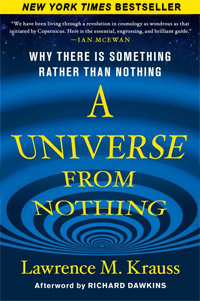The Dreadful Mumpsimus
December 20, 2010Lovem el-Said
February 4, 2011As the “is-ought problem” in philosophy is the unifying thread in my chapter “Good Without God” in The Australian Book of Atheism, I thought I’d check out what Wikipedia has to say on the topic. A jarring omission was – no mention of Ayn Rand’s elegant solution to the problem.
On investigating the discussion attached to that Wikipedia article, I learned that the omission was deliberate, with comments like these:
Why would you include Ayn Rand’s thoughts in an article about philosophy? Shouldn’t philosophy be the job of philosophers? And no, you don’t get to just call yourself a philosopher and therefore be one, despite what Rand may have thought.
I’m a philosophy student, and the few times I’ve even mentioned Ayn Rand to professors, they have literally LOL’d.
Actually, a philosopher is someone who writes philosophy – it is not a title conferred by a diploma. Ironically, the Wikipedia entry on David Hume tells us that he himself was not a philosopher-by-degree but a philosopher-by-action too: and his famous Treatise in its time was considered unimportant and described as “abstract and unintelligible.” Yet he is now “regarded as one of the most important figures in the history of Western philosophy and the Scottish Enlightenment”! Hmmm. Second-rate minds never learn.
Certainly you can’t just write philosophy to be considered a philosopher: there has to be some quality behind it. But that is not an excuse to ignore Rand either: just look at the quality of those named as “great philosophers” (this is not just my opinion: each such “great philosopher” is roundly panned by the followers of all the opposing “great philosophers” – just respectfully, as members of The Club).
Regarding Rand’s solution to the is-ought problem (the conditional nature of life – the theme I used in Good Without God), here are the penetrating criticisms quoted in the Wikipedia entry on Ayn Rand’s philosophy Objectivism:
Philosopher Robert Nozick … is particularly critical of Rand’s foundational argument in ethics, which states that one’s own life is, for each individual, the ultimate value because it makes all other values possible. He argues that to make her argument sound, one needs to explain why someone could not rationally prefer dying and having no values. Thus, her attempt to defend the morality of selfishness is, in his view, essentially an instance of begging the question.
Um, right. That is the kind of thing we get from all those notable philosophers out there: can’t understand a simple argument (the answer, by the way, is also in Good Without God).
It is remarkable that the simple answer to the is-ought problem gets no mention in Wikipedia because professional philosophers are unable to understand it. I don’t know whether to laugh or cry. I guess, as philosophers said in The Hitchhikers Guide to the Galaxy, I guess their minds are just too highly trained. But I will leave the final judgement on the quality of Rand’s philosophy to history. As Rand would say, reality will be the ultimate arbiter.




